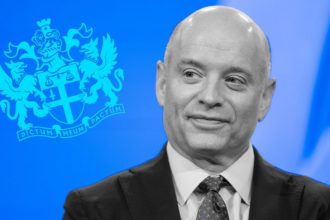A group of former FTX executives have joined forces to establish a new crypto trading platform based in Dubai.
Led by Can Sun, the former general counsel of FTX, the startup is called Trek Labs and received a license from Dubai’s crypto regulator last month, according to a recent report from The Wall Street Journal.
Armani Ferrante, another ex-FTX employee, serves as the chief executive of Trek’s holding company in the British Virgin Islands and also operates a partner firm called Backpack, which specializes in designing and operating digital currency wallets.
Ferrante’s name was the one featured in the press release announcing the launch of Backpack Exchange.
Sun and Ferrante told the WSJ that they aim to address the issues that led to the downfall of FTX.
They emphasize the importance of user fund protection, drawing from the lessons learned from their previous experience.
Backpack Exchange, the trading name for Trek Labs, will use Backpack’s technology to enable users to hold their funds in self-custody crypto wallets.
These wallets employ multiparty computation techniques, requiring multiple parties’ approval for any transaction.
By doing so, the exchange itself won’t have unilateral access to users’ funds, ensuring enhanced security and transparency.
Customers of Backpack Exchange will have the ability to verify their holdings at any time.
However, given their association with FTX, it remains uncertain how investors and users will respond to Trek Labs.
Sun acknowledges that trust and transparency are crucial in creating a genuine alternative to existing players in the post-FTX era.
Trek Labs Hire More Former FTX Employees
To bolster their team, Sun and Ferrante have hired other former FTX legal and compliance employees at Trek Labs.
Notably, Sun has been transparent about his previous role at FTX, disclosing it in regulatory filings and investor materials.
He also informed Dubai’s regulatory authorities about his testimony against Sam Bankman-Fried, the founder of FTX, who was recently convicted for commingling customer and company funds.
During the trial, Sun testified that Bankman-Fried had assured him that customer funds were segregated and protected, but it was later revealed that funds had been diverted to Bankman-Fried’s trading firm via a secret software backdoor.
Sun refused to provide legal justifications for the use of customer funds, leading to his departure from FTX.
He later cooperated with the investigation and signed a nonprosecution agreement with federal prosecutors.
Ferrante, too, witnessed the FTX disaster firsthand.
Having worked at Alameda, Bankman-Fried’s trading firm, and then at FTX, he experienced the collapse of the exchange and the subsequent loss of funds.
In Trek Labs, Ferrante holds a minority share in the holding company, alongside other former FTX employees.
Meanwhile, FTX’s new management has been trying to reclaim funds disbursed prior to its Chapter 11 filing in November of the previous year.
For one, the company has initiated legal action against Kives and his venture capital firm, K5, to recover the estimated $700 million Bankman-Fried had invested in it.
The complaint claims that Bankman-Fried was a “profligate patron” who sent millions to Kives, K5 Global, and Baum after he attended a social event hosted by Kives in 2022.
More recently, FTX’s bankruptcy advisers filed a lawsuit against Bybit Fintech to recover $953 million worth of cash and digital assets that were withdrawn from the exchange prior to its Chapter 11 filing a year ago.
Read the full article here





